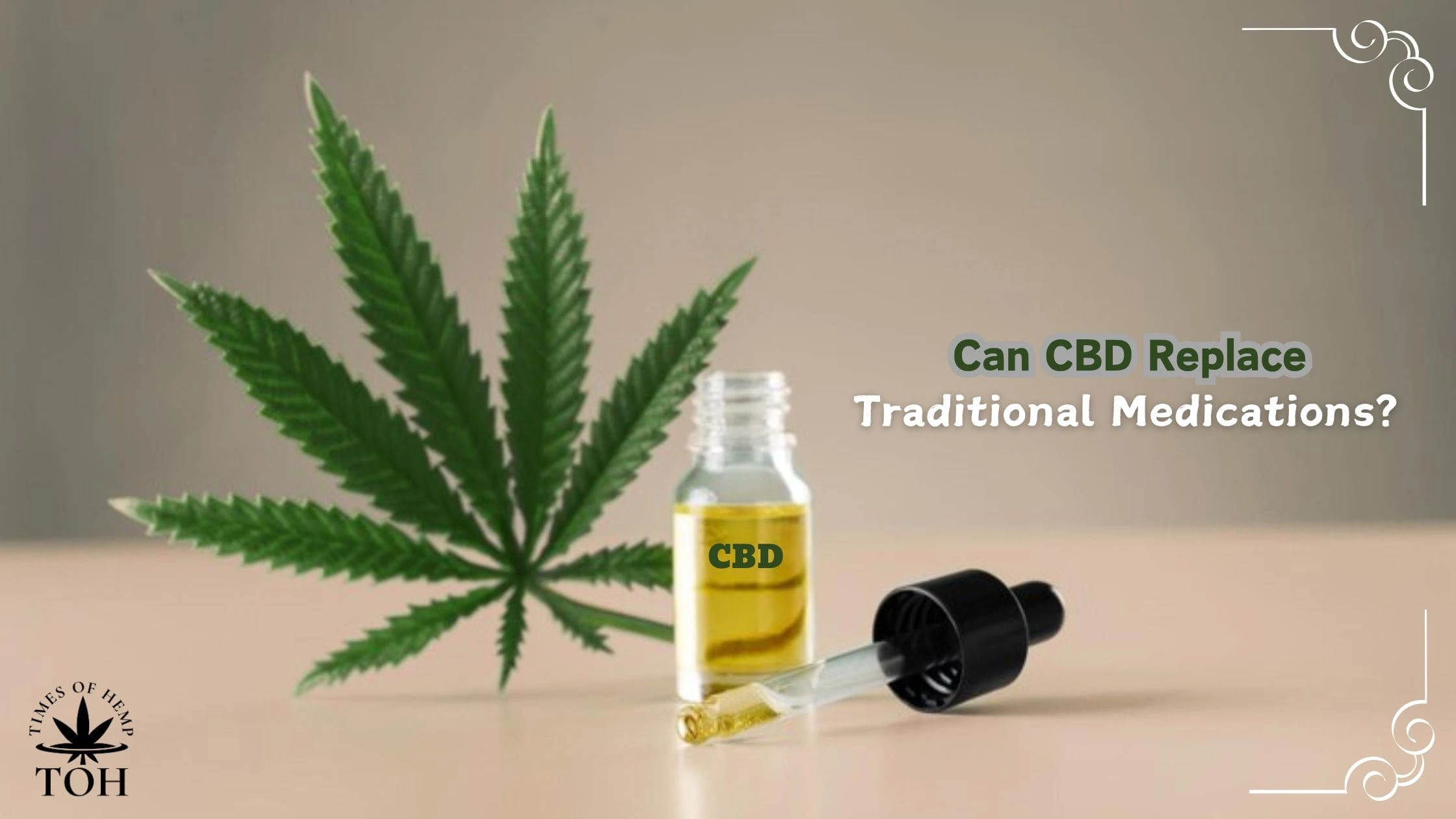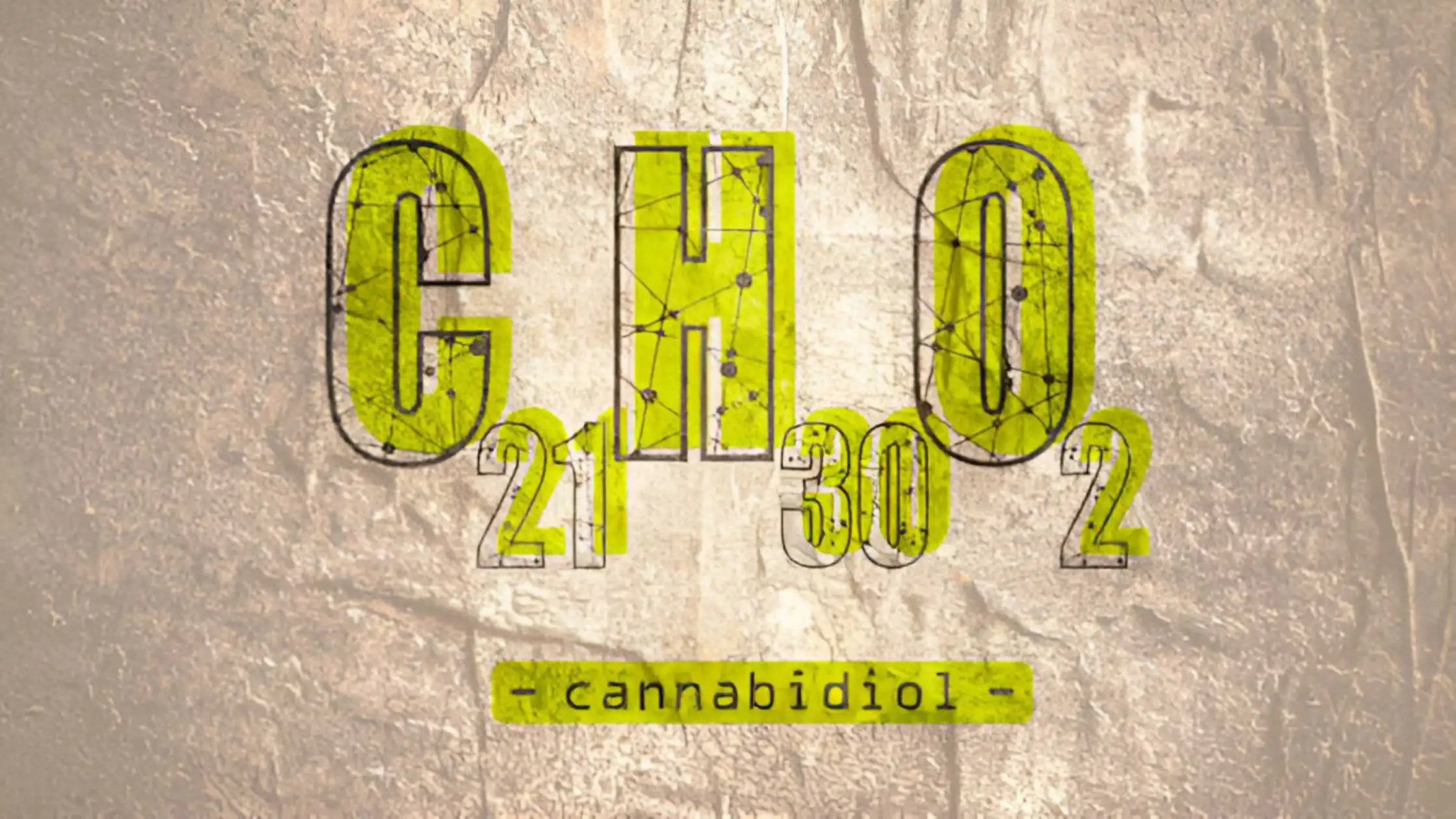Nowadays, cannabidiol (CBD), a non-psychoactive compound derived from the cannabis plant, has garnered immense attention for its potential health benefits. Promoted as a natural remedy for a range of ailments—from chronic pain to anxiety—CBD has become a beacon of hope for many seeking alternatives to traditional medications. But can CBD truly replace conventional pharmaceuticals? Today, Times of Hemp will let you delve into the science, benefits, and limitations to answer this compelling question.
The Rise of CBD in Modern Medicine
It’s amazing to see how CBD evolved from a misunderstood cannabis derivative to a well-known wellness fad. CBD is a desirable alternative for medicinal uses because it doesn’t provide a “high” as tetrahydrocannabinol (THC) does. Preliminary study and anecdotal evidence support its incorporation into the wellness sector by indicating that it can treat ailments including:
- Chronic pain
- Anxiety and depression
- Epilepsy
- Insomnia
- Inflammation
This growing list of potential benefits has fueled the global CBD market, which is projected to reach $47 billion by 2028. But how does CBD work in the body, and can it truly rival traditional medications?
Read More: Can CBD Support a Healthy Immune System?
How CBD Interacts with the Body
The endocannabinoid system (ECS), a network of receptors and neurotransmitters that controls vital processes including pain, mood, and immunity, is how CBD works. The ECS comprises:
- CB1 Receptors: Mostly located in the brain and affecting mood, memory, and pain perception, are part of the ECS.
- CB2 Receptors: The immune system contains CB2 receptors, which have an impact on immunological responses and inflammation.
Without the intoxicating effects of THC, CBD promotes balance and homeostasis by indirectly influencing these receptors. Its promise as a therapeutic agent is supported by this special interaction.
Conditions Where CBD Excels
Epilepsy
The treatment of epilepsy is among the most scientifically supported applications of CBD. Purified CBD, Epidiolex, an FDA-approved medication, has demonstrated notable effectiveness in lowering seizures in uncommon disorders such as Lennox-Gastaut syndrome and Dravet syndrome. This discovery marks a paradigm change in the way epilepsy is treated.
Inflammation and Chronic Pain
As a natural substitute for opioids and nonsteroidal anti-inflammatory medications (NSAIDs), CBD is becoming more and more popular. According to studies, the anti-inflammatory qualities of CBD may help with ailments like migraines, back pain, and arthritis. In light of the growing opioid crisis, its non-addictive nature makes it a desirable alternative.
Mental Health Disorders
According to a preliminary study, CBD may lessen the symptoms of post-traumatic stress disorder (PTSD), sadness, and anxiety. CBD seems to enhance mood and emotional regulation via interacting with serotonin receptors, providing a milder substitute for conventional antidepressants.
Sleep Disorders
Anxiety and stress are frequently associated with insomnia and other sleep disorders. Without the grogginess that comes with traditional sleeping drugs, CBD’s relaxing benefits can improve the quality of your sleep.
The Advantages of CBD Over Traditional Medications
- Natural Composition
Because it comes from plants, CBD appeals to people looking for natural, chemical-free treatments.
- Fewer Side Effects
CBD usually has fewer and milder side effects, like dry mouth or drowsiness, than pharmaceuticals like opioids, antidepressants, or anti-anxiety drugs.
- Non-Addictive Nature
CBD lowers the danger of reliance because it is not habit-forming like benzodiazepines and opioids are.
- Versatility
There is versatility in how CBD can be administered because it comes in a variety of forms, including oils, capsules, lotions, foods, and even beverages.
Can CBD Fully Replace Traditional Medications?
Even though CBD has potential, it is unlikely to ever fully replace prescription drugs. This is the reason:
Limited Research
The majority of CBD research is still in its early stages, despite promising trials. To completely comprehend its effectiveness and safety under a range of situations, extensive clinical trials are required.
Efficacy Variability
Not everyone responds well to CBD. Its efficacy may be impacted by variables like heredity, dosage, and the severity of the ailment.
Lack of Regulation
The existing lack of regulation in the CBD sector results in inconsistent product quality. The medicinal value of certain products may be compromised by incorrect labelling, impurities, or inadequate CBD concentrations.
Complex Medical Conditions
For life-threatening conditions such as cancer or severe infections, CBD cannot replace the precision and potency of traditional medications like chemotherapy or antibiotics.
The Future of CBD in Medicine
Integration, not replacement, is the way of the future for CBD. As further studies are conducted, CBD may be used in conjunction with conventional therapies to provide a more comprehensive approach to healthcare. For example:
- Pain Management: While CBD effectively relieves pain, it may also lower the risk of addiction when combined with low-dose opioids.
- Mental Health: CBD may be used in conjunction with traditional antidepressants or anxiety medications to improve mental health outcomes.
- Inflammatory Diseases: CBD may be used with immunosuppressants to reduce inflammation in autoimmune diseases.
Challenges to Overcome
Some issues need to be resolved to realize CBD’s full potential:
- Standardization of Doses: Determining doses for particular conditions that are generally accepted.
- Regulation: Using stringent testing and certification to guarantee product quality and transparency.
- Education: Spreading knowledge among medical experts to close the gap between CBD medicines and conventional medicine.
Conclusion
Although CBD has enormous therapeutic promise, it is not a cure-all. Although it works well for conditions like anxiety, epilepsy, and chronic pain, it is not a universally applicable remedy. Rather than replacing conventional treatments, CBD’s function in contemporary medicine will probably be complementary, strengthening them.
CBD has the potential to completely change how we think about health and wellness as science continues to solve its riddles. To guarantee safe and efficient use, it is essential for anyone thinking about using CBD to speak with a healthcare provider.
In a society that is becoming increasingly dependent on artificial solutions, CBD is a natural ally and a light of hope for improved health. It is unclear if it will completely replace conventional drugs, but there is no denying its capacity to change people’s lives. The journey has just begun, and the future looks promising.
Read More: 5 Benefits of CBD for Concentration and Focus
Disclaimer:
This article is for informational purposes only and should not be considered medical advice. Always consult a healthcare professional before starting any new treatment.





My brother suggested I might like this website. He was totally right. This post actually made my day. You cannot imagine just how much time I had spent on this information. Thanks.
I need to spend some time learning much more or understanding more. Thanks for the magnificent info.
very good info. nice post, thanks for sharing!!